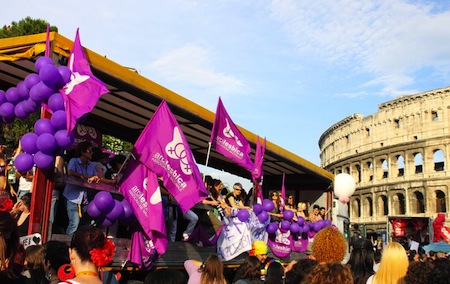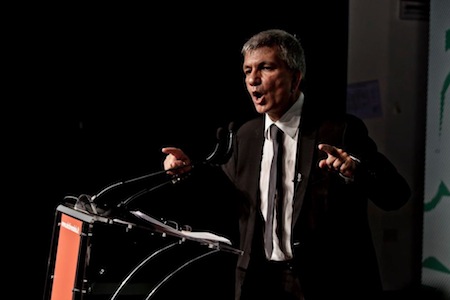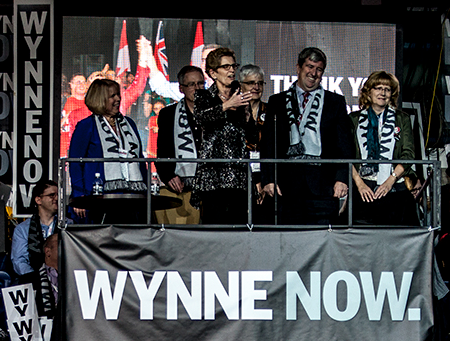Last weekend, Nichi Vendola, the openly gay regional president of Puglia, pluckily posted to Twitter a photo of himself campaigning alongside Pier Luigi Bersani, the leader of the center-left Partito Democratico (PD, Democratic Party), captioned ‘coppia di fatto‘ (‘de facto couple’).
![]()
Vendola, the leader of the more stridently leftist Sinistra Ecologia Libertà (SEL, Left Ecology Freedom), is part of the broad centrosinistra (center-left) coalition that hopes to elect Bersani as Italy’s next prime minister this weekend, and the pun subtly reinforced the role that gay rights has played in Italy’s election campaign.
The subtlety speaks a lot to how the issue of gay rights and same-sex marriage has hummed along the surface of a campaign that’s been almost entirely fought over economic policy — he state of Italy’s finances, economic reforms, budget austerity and the encroaching control of Brussels and Berlin on Italian governance. Nonetheless, the gay rights issue is probably the most important social issue as the election approaches.
Given that Rome, Italy’s capital, is also home to the Vatican, gay rights is also one of the most polarizing issues of Italian public life.
Vendola (pictured above) is perhaps the most vigorous advocate of gay rights and same-sex marriage in Italy, but the progress elsewhere in Europe has also underscored Italy’s lack of progress on gay rights.
With parliaments in two of Europe’s four most-populous countries — the United Kingdom and France — passing legislation that allows for same-sex marriage in the past month, there’s some pressure on Italy to follow suit. Italy also lacks any anti-discrimination laws or hate crime laws designed to prevent crimes with a particularly anti-gay bias. Although southern Europe isn’t traditionally as socially liberal as northern Europe, both Spain and Portugal have promulgated full same-same marriage rights — Spain did so eight years ago.
Continue reading What will Italy’s election mean for LGBT rights?


